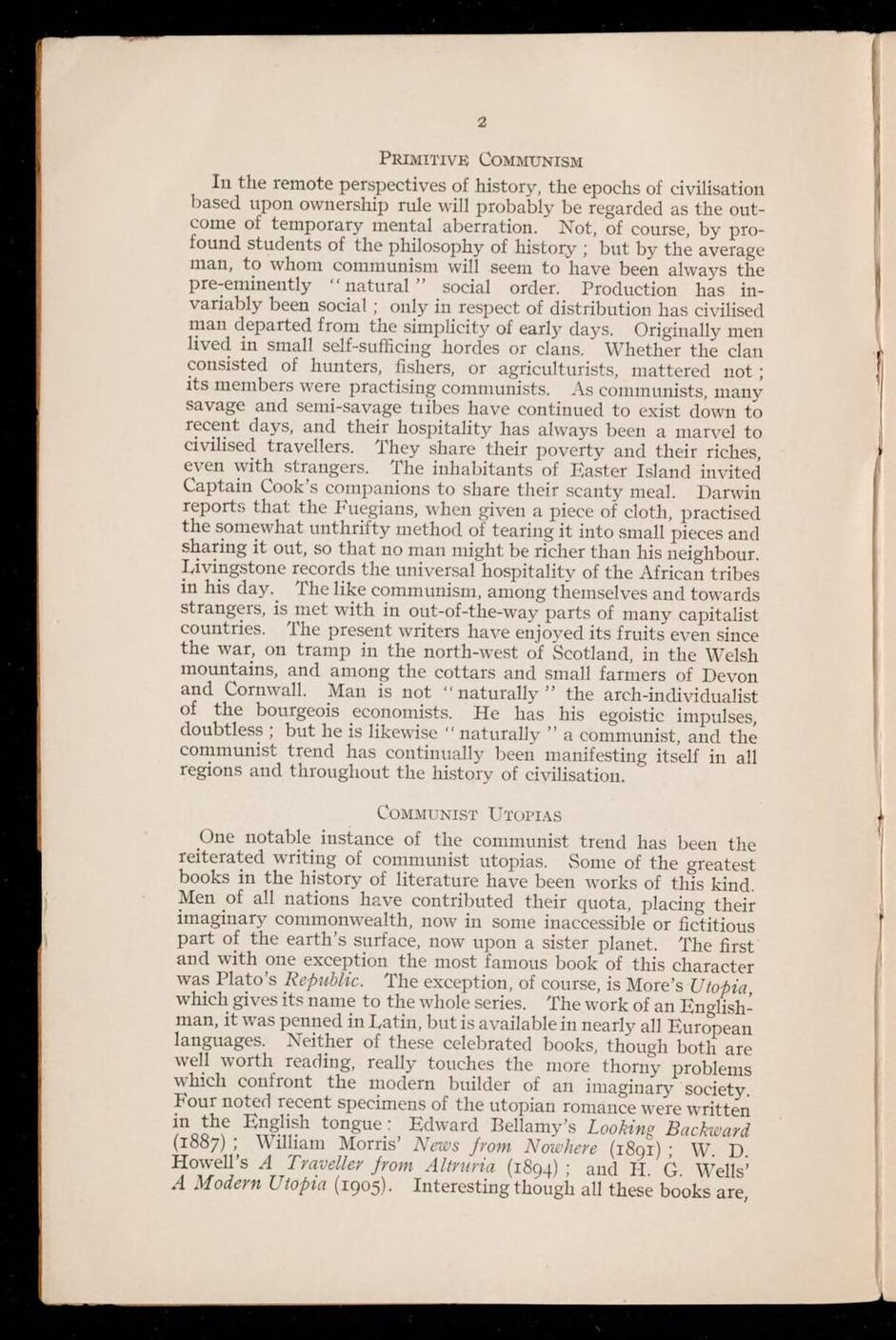2
Primitive Communism
In the remote perspectives of history, the epochs of civilisation based upon ownership rule will probably be regarded as the outcome of temporary mental aberration. Not, of course, by profound students of the philosophy of history; but by the average man, to whom communism will seem to have been always the pre-eminently "natural" social order. Production has invariably been social; only in respect of distribution has civilised man departed from the simplicity of early days. Originally men lived in small self-sufficing hordes or clans. Whether the clan consisted of hunters, fishers, or agriculturists, mattered not; its members were practising communists. As communists, many savage and semi-savage tribes have continued to exist down to recent days, and their hospitality has always been a marvel to civilised travellers. They share their poverty and their riches even with strangers. The inhabitants of Easter Island invited Captain Cook's companions to share their scanty meal. Darwin reports that the Fuegians, when given a piece of cloth, practised the somewhat unthrifty method of tearing it into small pieces and sharing it out, so that no man might be richer than his neighbour. Livingstone records the universal hospitality of the African tribes in his day. The like communism, among themselves and towards strangers, is met with in out-of-the-way parts of many capitalist countries. I he present writers have enjoyed its fruits even since the war, on tramp in the north-west of Scotland, in the Welsh mountains, and among the cottars and small farmers of Devon and Cornwall. Man is not "naturally" the arch-individualist of the bourgeois economists. He has his egoistic impulses, doubtless; but he is likewise "naturally" a communist, and the communist trend has continually been manifesting itself in all regions and throughout the history of civilisation.
Communist Utopias
One notable, instance of the communist trend has been the reiterated writing of communist utopias. Some of the greatest books in the history of literature have been works of this kind. Men of all nations have contributed their quota, placing their imaginary commonwealth, now in some inaccessible or fictitious part of the earth's surface, now upon a sister planet. The first and with one exception the most famous book of this character was Plato's Republic. The exception, of course, is More's Utopia, which gives its name to the whole series. The work of an Englishman, it was penned in Latin, but is available in nearly all European languages. Neither of these celebrated books, though both are well worth reading, really touches the more thorny problems which confront the modern builder of an imaginary society. Four noted recent specimens of the utopian romance were written in the English tongue: Edward Bellamy's Looking Backward (1887) Wilhiam Morris' News from Nowhere (1891); W. D. Howell's A Traveller from Altruria (1894); and H. G. Wells' A Modern Utopia (1905). Interesting though all these books are,
